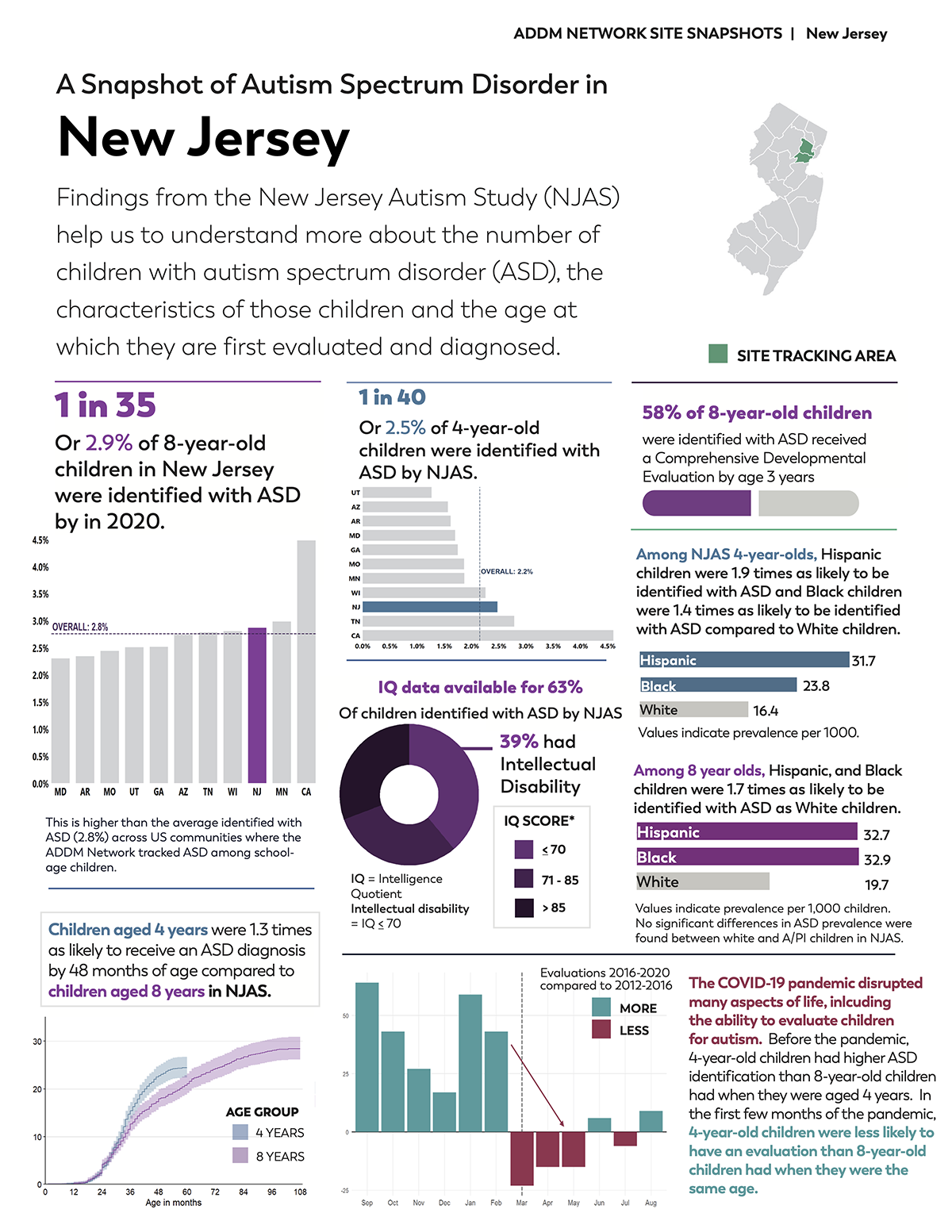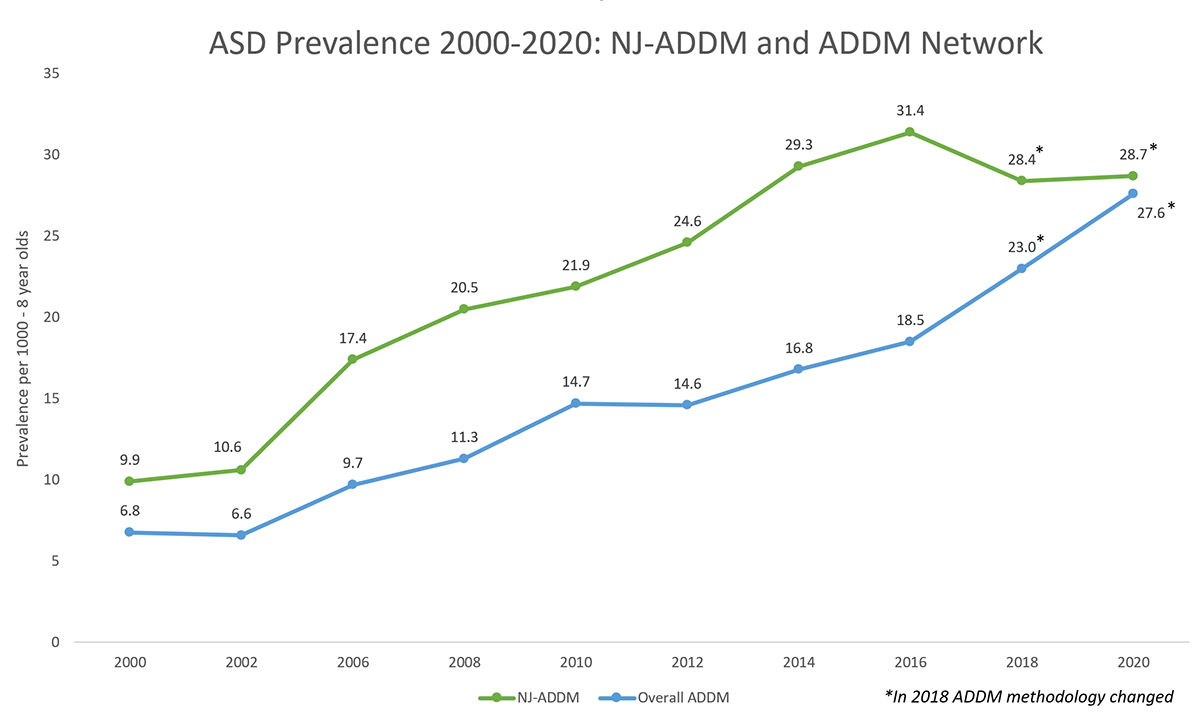

New Jersey Autism Study
The New Jersey Autism Study (NJAS) is an Autism Spectrum Disorders (ASD) monitoring system, established by researchers at the Rutgers New Jersey Medical School, in cooperation with the Centers for Disease Control and Prevention (CDC). Support to the New Jersey Autism Study has been provided by the Centers for Disease Control and Prevention (CDC) and the New Jersey Governor's Council on Autism. The New Jersey Autism Study (NJAS) autism ascertainment strategy involves active, thorough, ongoing, retrospective, cohort and region-specific, review and analysis of information contained in school and health records. Since NJAS is a public health investigation, it is implemented under waiver of informed consent. NJAS surveillance is implemented in a four county New Jersey metropolitan area (Essex Hudson, Union, Ocean Counties), a region with an annual birth population of approximately 34,000. Baseline surveillance activities by NJAS encompassed two cohorts (1992 & 1994) and showed a significantly higher prevalence of ASD in our state, in comparison to other US regions (CDC, MMWR SS 2007;56). The reasons for this higher prevalence are not understood.
Mission Statement
Our mission is to use epidemiology to understand the prevalence and expression of autism and to advance the scientific study of autism risk and protective factors.
CDC-ADDM 8-year-old & 4-year-old estimates 2020